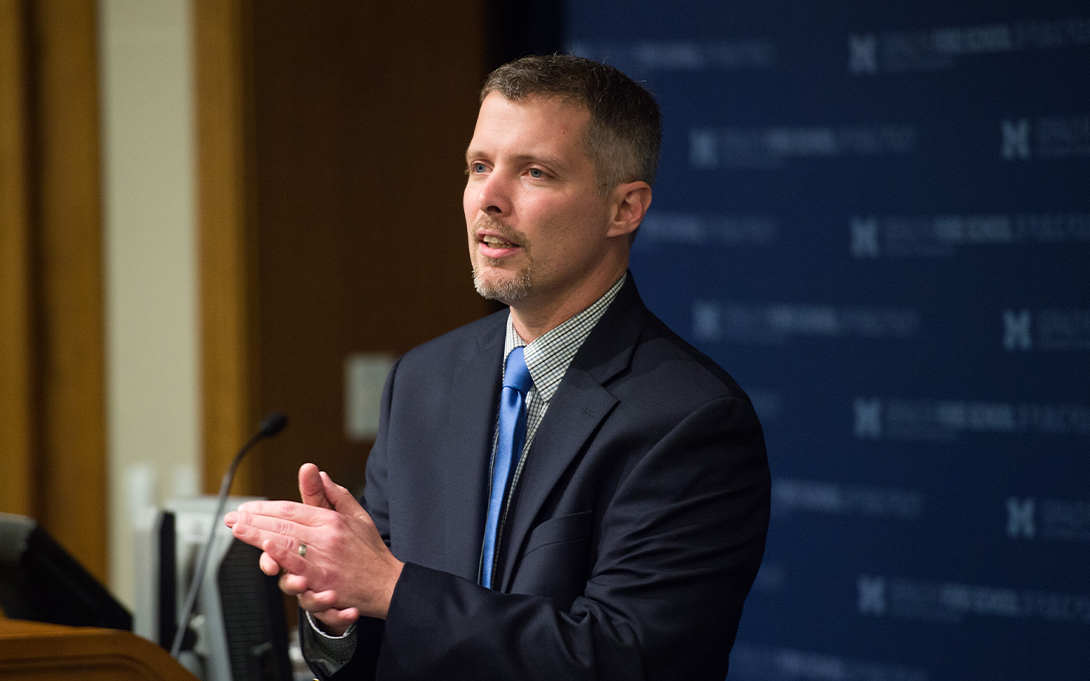
With widespread shutdowns of businesses across the country due to COVID-19, states have seen a dramatic rise in the number of unemployed and those seeking unemployment benefits. This week, unemployment claims jumped 2000% in Michigan, putting the state’s safety net under extreme pressure. In an interview with Michigan Radio's "Stateside," H. Luke Shaefer warned that the drastic jump will stress assistance programs like unemployment insurance and the Supplemental Nutrition Assistance Program (SNAP).
“These are unprecedented numbers in terms of a shock to the system. We've never seen it ramp up quite this fast. And these are maybe the biggest numbers we've ever seen. You've got lots of small businesses -- book shops, coffee shops, toy stores, restaurants, and even auto plants that are closing down given the current circumstances. Some of these places have strong connections to the unemployment insurance system.”
But he said that for other workers, the safety net is inaccessible. “If you think of house cleaners, handymen, rideshare drivers -- all of these groups aren't really set up well to access unemployment insurance benefits,” he said.
Despite some provisions of the assistance packages, there are still a lot of gaps for families. Even with SNAP expansions, the benefit doesn’t help pay rent or buy toilet paper. For unemployment insurance, it's an open question as to whether the state will run out of money.
“In a lot of places [states], federal action will need to be taken to extend unemployment insurance benefits,” Shaefer said. “This is a smart move, something we absolutely have to do and should do fast.”
Shaefer was interviewed on March 23, on the “Stateside” radio program produced by Michigan Radio and broadcast across the state on public radio stations.
You can hear the entire interview here.
H. Luke Shaefer is the inaugural Hermann and Amalie Kohn Professor of Social Justice and Social Policy at the Gerald R. Ford School of Public Policy. He also serves as the inaugural director of Poverty Solutions, an interdisciplinary, presidential initiative at U–M that seeks to partner community stakeholders and scholars to find new ways to prevent and alleviate poverty. Shaefer's research on poverty and social welfare policy in the United States has been published in top peer–reviewed academic journals in the fields of public policy, social work, public health, health services research, and history, and his work has been supported by the National Science Foundation and U.S. Census Bureau among other sources. He has presented his research at the White House and before numerous federal agencies, has testified before the U.S. Senate Finance Committee, and has advised a number of the nation's largest human service providers. His work has been cited in the New York Times, Washington Post, The Economist, The Atlantic, and Los Angeles Times, among other media outlets, and he has been featured on such programs as Marketplace and CNBC's Nightly Business Report. His book with Kathryn Edin, $2.00 a Day: Living on Almost Nothing in America, was named one of the 100 Notable Books of 2015 by the New York Times Book Review, and won the Hillman Prize for Book Journalism among other awards. Shaefer serves on the Commission on Community Action and Economic Opportunity for the State of Michigan. He received his B.A. in politics from Oberlin College and A.M. and Ph.D. from the University of Chicago, School of Social Service Administration.
